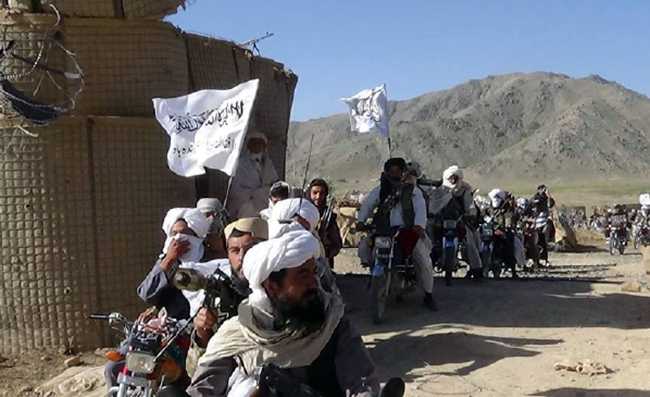The sordid acts of terrorist fighters have triggered a sense of consternation in Afghanistan. The flagrant violation of Afghans’ fundamental rights on the grounds of their caste, color and creed is widespread. Warring parties, mainly the Taliban guerilla fighters, spilt the blood of civilians indiscriminately within the past decade and half. Afghan nation sustained heavy casualties and suffered excruciating pain as a result of unmitigated militancy. Despite counterinsurgency, there seems no light at the end of the tunnel.
The emergence of the self-styled Islamic State of Iraq and the Levant (ISIL) has compounded the sufferings of the public. ISIL fighters intimidate people and stoke sectarianism through targeting ethnic minority groups. Women and children are highly prone to the venom spewed forth by this group. To put it succinctly, ISIL fighters pose more serious threat to Afghan nation and increase their vulnerability to violence and bloodshed.
Despite the fall of the Taliban’s regime, national and international newspapers are replete with tragic news and doleful stories about Afghan people and the nascent democracy, in the post-Taliban Afghanistan, could not stymie the implacable militants from violating Afghans’ rights and freedoms. To the chagrin of Afghan nation, the true spirit of democracy, which will necessarily lead to peace and prosperity, has been elusive. Similarly, the High Peace Council (HPC) that was established in 2010 failed to persuade the Taliban to come to negotiating table. With Mullah Haibatullah at the helm, the Taliban hold out against reconciliation process and will not desist their deadly offensives. Despite the fact that the Taliban are loath to hold amicable talks, Afghan officials seek persistently to nudge them to peace table.
Earlier, Gen John W. Nicholson, the top US commander in Afghanistan, claimed that the US was aware of Afghan Taliban leadership’s presence in Peshawar and Quetta, adding that the military would continue to put pressure on Taliban sanctuaries inside and outside Afghanistan. Fractious Pakistan-US relations got further strained when US President Donald Trump unveiled his administration’s policy on Afghanistan and South Asia. The policy lays special emphasis on kinetic operations to subdue Taliban militancy in Afghanistan, envisions greater role for India in Afghanistan and the overall regional security, and has particularly reprimanded Pakistan for not being a sincere partner in the fight against terrorism.
Being dubious about a genuine intention of combating terrorism, Afghan-Pak officials continued the blame game; however, the mutual relations have started to thaw following the trip of Pakistani Chief of Army Staff Gen. Qamar Javed Bajwa to Kabul. He promised that his country will combat terrorism alongside Afghanistan and support Afghan-led and Afghan-owned talks. Indeed, if Islamabad advocates the reconciliation process with bona fide intention, the efforts made for nudging the Taliban to peace table will bear the desired result. After all, the adverse effects of war suggest that negotiation will be the solution to the interminable conflict.
It is self-explanatory that Afghanistan and Pakistan are seriously afflicted by terrorism and the blame game and scurrilous remarks will only exacerbate the turbulent situation. On the other hand, the intensified attacks of warring factions reflect the monolithic networks of terrorists. Now both the countries will have to thwart militants from shedding the blood of innocent individuals, mainly women and children, and frustrate their attempts to carry out large-scale offensives. If Kabul and Islamabad do not combat terrorism side by side, their efforts for counterinsurgency will be ineffectual.
The protracted war and nefarious acts of terror are no more tolerated by Afghan nation. With the US invasion in Afghanistan following the 9/11 episode, there was a lull in militancy, but the country soon reverted to instability as the Taliban were reorganized across the border. With the inexorable militancy, the war on terror was proved abortive and the combat mission of US-led NATO forces came to an end in 2014. The withdrawal of foreign troops from Afghanistan, which was perhaps an egregious political error, the Taliban militants intensified their attacks inflicting heavy casualties upon Afghan combatants and non-combatants without a tinge of mercy. Since the consultative role of US soldiers failed to mitigate insurgency, Trump ordered the deployment of more troops in Afghanistan to resume military operations.
Although Afghan government, along with its international allies, seeks to bring the Taliban to negotiating table, they do not succumb to call for peace talks – this will necessarily elicit military reaction.
Home » Opinion » The Unbreakable Deadlock of Peace Talks
The Unbreakable Deadlock of Peace Talks
| Hujjatullah Zia

